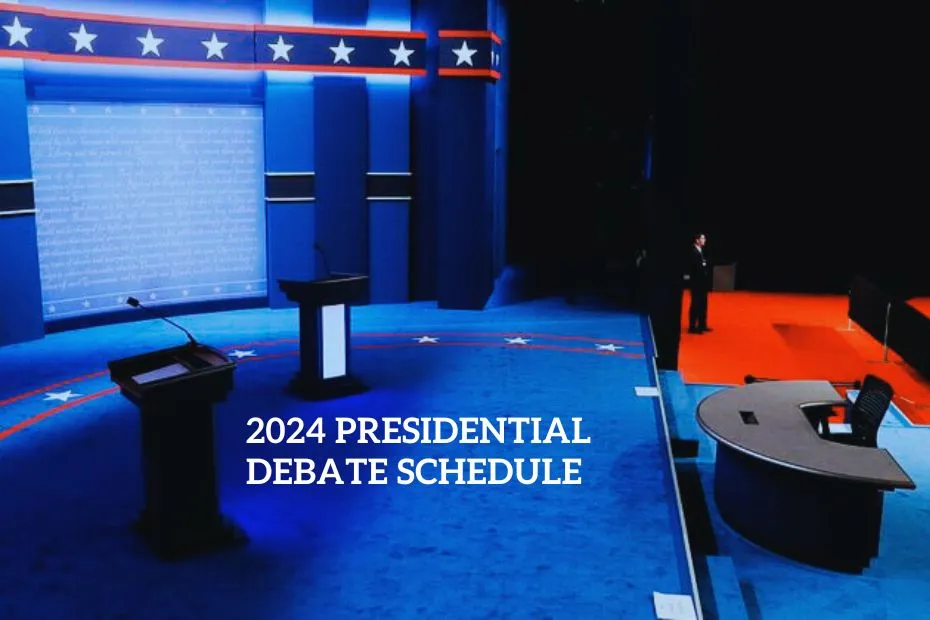Importance of Presidential Debate Dates

Presidential debates are a cornerstone of American democracy, providing voters with a crucial opportunity to directly compare candidates’ positions and assess their leadership qualities. The timing of these debates, however, is not arbitrary; it holds strategic significance, influencing voter turnout, media coverage, and ultimately, the outcome of the election.
Impact on Voter Turnout
The timing of presidential debates can significantly impact voter turnout. Debates held closer to the election tend to generate more public interest and media attention, leading to increased voter engagement. This is because voters are more likely to be informed about the candidates and the issues at stake, making them more motivated to participate in the election. Conversely, debates held earlier in the campaign cycle may have a less pronounced impact on voter turnout, as voters may not yet be fully engaged in the process.
Influence on Media Coverage, Presidential debate dates
Presidential debates are major media events, attracting extensive coverage from news outlets across the country. The timing of these debates can influence the amount and nature of media attention. Debates held closer to the election are likely to receive more extensive coverage, as journalists and commentators strive to provide voters with up-to-the-minute analysis and insights. This increased media attention can help to shape public opinion and influence voter perceptions of the candidates.
Impact of Presidential Debates on the Election: Presidential Debate Dates

Presidential debates are a cornerstone of American democracy, offering voters a unique opportunity to directly compare candidates’ positions on critical issues and assess their leadership qualities. While the debates themselves are a mere snapshot in the larger election cycle, their impact on the electorate and the overall narrative of the campaign can be profound.
Influence on Different Voter Groups
The impact of debates varies significantly across different voter demographics. For example, undecided voters often find debates particularly influential, as they provide a platform for candidates to sway opinions and present compelling arguments. Debates can also reinforce existing preferences for voters who are already leaning towards a particular candidate. For voters who are politically engaged and knowledgeable, debates can offer insights into candidates’ policy stances and their ability to articulate their vision.
- Undecided Voters: Debates can be pivotal in swaying undecided voters, as they provide a platform for candidates to present their arguments directly and engage in critical exchanges.
- Highly Engaged Voters: Debates can provide highly engaged voters with deeper insights into candidates’ positions on key issues, allowing them to evaluate policy nuances and assess their ability to lead.
- Less Engaged Voters: While debates can provide valuable information, less engaged voters may be less likely to pay close attention or be influenced by the content.
Influence on Key Issues and Policy Discussions
Presidential debates can significantly impact the national conversation around key issues. Candidates’ performances during debates can elevate specific topics to the forefront of public discourse, prompting voters to prioritize those issues when making their decisions. Conversely, debates can also lead to the marginalization of certain issues if candidates fail to engage in substantive discussions or if their positions on those issues are not compelling enough to attract attention.
- Economic Policy: Debates can shape public perceptions of candidates’ economic policies, particularly during periods of economic uncertainty.
- Healthcare: Debates on healthcare policy can highlight differences in candidates’ approaches to access, affordability, and quality of care.
- Foreign Policy: Debates can provide a platform for candidates to Artikel their foreign policy strategies and their approach to international relations.
Impact on the Narrative of the Election
Presidential debates can significantly shape the narrative of the election by influencing public perceptions of candidates’ strengths and weaknesses. A strong performance in a debate can boost a candidate’s momentum, while a poor performance can damage their image and erode public trust. Debates can also influence the media’s coverage of the campaign, with certain topics and storylines receiving greater attention based on their prominence in the debates.
- Candidate Image: Debates can reinforce or challenge public perceptions of candidates’ personality, competence, and leadership qualities.
- Media Coverage: Debates often drive media coverage of the campaign, with reporters and analysts focusing on key moments and exchanges.
- Election Momentum: A strong debate performance can create positive momentum for a candidate, while a poor performance can undermine their campaign.
The presidential debate dates are important for any voter, as they offer a chance to hear the candidates’ stances on key issues. While we’re focused on the debates, it’s also worth remembering the impact of natural disasters like tropical storm Debby hurricane , which can significantly influence the political landscape and voter priorities.
The presidential debate dates are always a hot topic, with everyone eager to see how the candidates perform under pressure. It’s interesting to compare these debates to the historical significance of the abc debate , which had a major impact on the political landscape.
While the format and context of debates have changed over time, the core purpose remains the same: to provide voters with information and insight into the candidates’ positions and personalities.
